Rising damp is a massive concern for property owners, but there is an effective damp proofing solution. A damp proof course protects a home from dampness, offering confidence and comfort to homeowners and residents.
However, you shouldn't expect this damp proofing solution to last forever, and it is natural for a homeowner to question how long a damp proofing course lasts. The longevity of the course impacts how you view the damp proof course cost.
At DryCore, we aim to help you understand every aspect of damp proofing, helping you find the ideal solution for your needs. This includes finding the most effective damp proofing solution, and what the best value damp proofing cost is for you. If you want to make an informed decision about investing in a new damp proof course or upgrading the original damp proof course, we are here to offer you expert advice.
A damp proof course (DPC) is a barrier incorporated into the walls or floors of a building to prevent the upward movement of moisture from the ground. Its purpose is to protect the structure against rising damp, which can cause damage to walls, promote the growth of mould, and compromise the overall integrity of the building.
For more information, check out our post “What Is A Damp Proof Course".
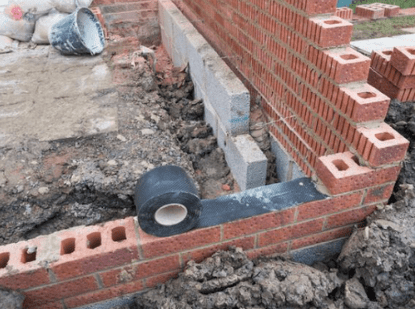
The lifespan of a damp proof course can vary depending on various factors such as the quality of installation, the type of DPC, and environmental conditions. However, a well-installed and maintained traditional DPC can last for several decades, often ranging from 20 to 50 years.
It's important to note that the lifespan can be influenced by external factors, so regular inspections, such as an independent damp survey, are recommended.
For more learnings, you can check out our post "How Long Does Damp Proofing Last".
Several signs may indicate that a damp proof course needs replacing. These include:
If you notice any of these signs, it is advisable to consult a damp proofing specialist for a thorough assessment.
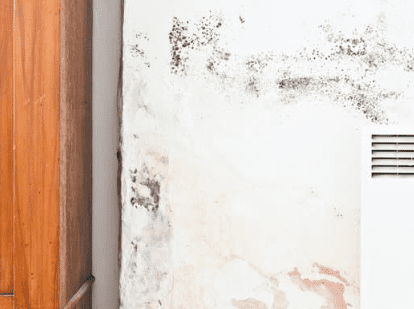
In some cases, it may be possible to repair a damp course rather than replace it entirely. However, the feasibility of repair depends on the extent and nature of the damage. Small localised issues, such as damaged sections, can potentially be repaired.
Yet, if the DPC has significantly deteriorated or if the damage is widespread, replacement is often the more viable and long-lasting solution.
Determining the presence of a damp proof course can be challenging without professional assistance. However, there are a few indicators that can help you make an initial assessment:
Older buildings built before the mid-20th century may not have a DPC or have an inadequate one.
Look for any visible signs of a DPC, such as a layer of slate, bitumen, or damp proof membranes, typically located near ground level.
Check the property's architectural plans or any relevant paperwork that might mention the installation of a DPC during construction.
Yes, there are various types of damp proof courses available, including:
Physical damp proof courses are commonly made of materials such as slate, plastic, or metal. They are installed horizontally within the walls, typically at ground level, to create a barrier that prevents moisture from rising.
These physical barriers are effective in blocking the capillary action of water, preventing it from entering the structure. The choice of material for the physical DPC depends on factors like durability, compatibility with the building materials, and the specific requirements of the property.
A well-installed physical DPC can have a lifespan ranging from 20 to 50 years, depending on various factors such as the quality of installation, the materials used, and the environmental conditions.
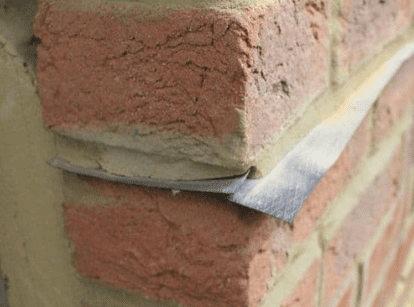
Chemical damp proof courses involve injecting liquid chemicals into the walls. These chemicals penetrate masonry walls, creating a waterproof barrier that prevents rising damp. This method is often used in properties where the installation of a physical damp course is not feasible or practical.
Chemical DPCs can be effective in creating a continuous barrier throughout the masonry and can even reach areas that are difficult to access. However, the success of this method depends on proper damp proof injection techniques and the quality of the chemicals used.
The lifespan of a chemical damp proof course can vary depending on the specific products used and the quality of the installation. Generally, when properly installed by a professional, chemical DPCs can provide long-lasting protection against rising damp.
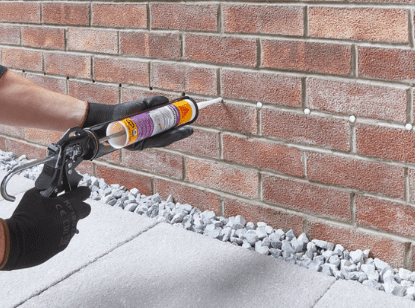
Electro-osmotic damp proof courses use low-level electrical currents to repel moisture and prevent rising damp. This system involves the installation of an electrode at a low level in the wall, which induces an electric field that counteracts the movement of moisture. The electrical charges repel the water molecules, preventing them from rising through the masonry.
Electro-osmotic DPCs are typically used in situations where physical or chemical methods are not suitable or effective. It is important to note that the installation of an electro-osmotic DPC requires specialist equipment and expertise.
The lifespan of an electro-osmotic DPC can also vary depending on the manufacturer, the system's quality, and proper installation. Typically, high-quality electro-osmotic systems can have a lifespan of 20 to 30 years or more.
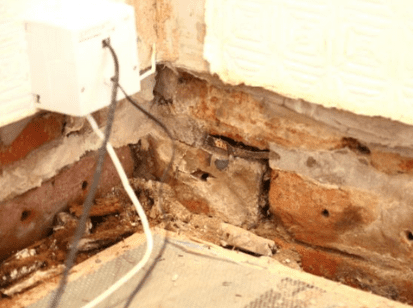
Yes, over time, an original damp proof course can deteriorate, become damaged, or lose its effectiveness due to various reasons, including:
Wear And Tear: Constant exposure to moisture, temperature fluctuations, and physical stress can degrade the DPC materials.
Poor Installation: If the DPC was not installed correctly or was compromised during construction, it may not function as intended.
Ground Movement: If the property experiences ground subsidence or movement, it can damage the DPC and render it ineffective.
Regular inspections and maintenance are crucial to identify any potential issues with the DPC and address them promptly.
During property refurbishment, it is advisable to assess the condition of the existing damp proof course. If the DPC is damaged, ineffective, or nearing the end of its lifespan, it is recommended to replace it.
Neglecting to address a failing DPC during refurbishment can lead to ongoing damp problems and compromise the structural integrity of the property and the success of the renovation work.
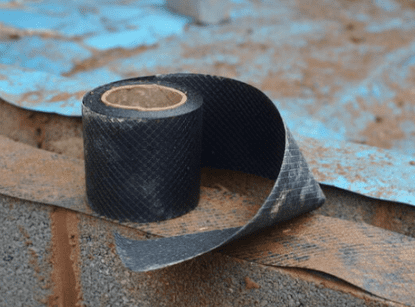
Failing to replace a damp proof course can have several consequences, including:
Increased Risk Of Structural Damage: Rising damp can affect the integrity of walls, leading to rot, decay, and even subsidence if left untreated.
Health Hazards: Dampness promotes the growth of mould, which can cause respiratory problems and allergies in occupants.
Damage To Interior Finishes: Dampness can ruin wallpaper, paint, plaster, and other interior materials, resulting in costly repairs or replacements.
Reduced Property Value: A property with persistent damp problems may suffer from decreased market value due to the associated issues and potential maintenance requirements.
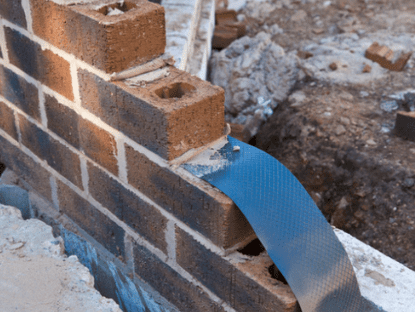
Installing a damp proof course is a complex task that requires specialist knowledge and equipment. It is strongly recommended to hire a professional damp specialist or a qualified contractor with experience in damp proofing.
Damp course professionals have the expertise to assess the property, select the appropriate DPC, and ensure proper installation, maximising the effectiveness of the damp proofing measures.
Our post "How Much Is A Damp Proof Course" maybe interest you. You can check it out.
Several factors can influence the lifespan of a damp proof course, including:
Quality Of Installation: Proper installation techniques and adherence to industry standards play a crucial role in the longevity of the DPC.
Material Selection: The choice of DPC material, its durability, and resistance to degradation impact how long it will last.
Environmental Conditions: Factors such as climate, exposure to moisture, and ground conditions can affect the wear and tear of the DPC.
Maintenance And Upkeep: Regular inspections, prompt repairs, and appropriate maintenance can extend the lifespan of a damp proof course.
It is advisable to have your property inspected for dampness and DPC issues at least every 5-10 years, even if no visible signs of dampness are present. Regular inspections allow for early detection of potential problems and ensure timely intervention, lowering the risk of significant damage and reducing repair costs in the long run.
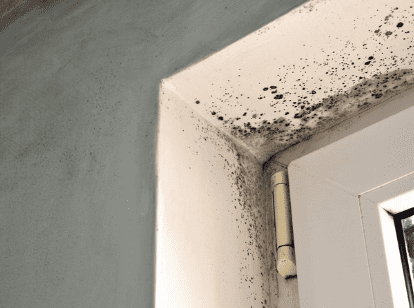
A damp proof course primarily addresses rising damp, which is moisture moving vertically through walls or floors from the ground. However, a damp proof course may not be effective against other types of dampness, such as penetrating damp (water entering through external walls) or condensation (excessive moisture caused by inadequate ventilation).
These different types of dampness may require additional damp-proofing measures or ventilation solutions specific to the issue at hand.
Yes, it is possible to install a damp proof course retrospectively in an existing property. However, the process can be more challenging and disruptive compared to installing it during the initial construction phase.
Retrospective installation often involves techniques such as chemical DPC injection, electro-osmotic systems, or external waterproofing membranes.
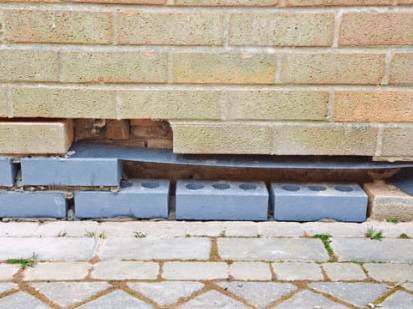
While a damp proof course will naturally age over time, proper maintenance and care can help protect and extend its lifespan. Here are some common methods to care for your DPC:
Conduct periodic inspections to identify any signs of damage or deterioration in the DPC.
Ensure proper functioning of gutters and downpipes to prevent excess water near the foundation.
Properly grade the landscape around the property to ensure water drains away from the building.
Prevent materials like soil, rubble, or paving from bridging the DPC, as it can compromise its effectiveness.
Adequate ventilation helps to prevent excessive moisture build-up and condensation.
Repair any leaks or plumbing issues that can introduce excess moisture into the property.
In the UK, The Building Standards have requirements for a damp proof course, stating: “Damp Proofing Course should be at least 150 mm above the ground level unless the design of the building is built that will protect the wall.”
It is also expected the course will be a continuous one, and it should have a damp proof membrane in place. When there is an external cavity wall at the property, the regulations state the cavity must be situated at least 225mm beneath the DPC.
You can also check out our post "How To Install Damp Proof Membrane On Concrete Floor" for more additional insights.
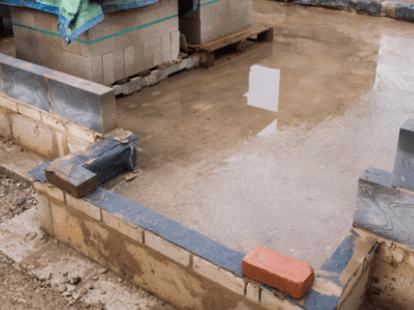
As of summer 2023, Checkatrade states the average cost of a damp course for a medium-sized property stands at £800, while for interior walls, there is an average cost of £75 per metre for treatment.
The average cost stated by Checkatrade per property type is as follows:
The same source cites average labour costs as £225.
If you own a medium-sized property, £800 is a significant one-off payment, but over the course of 20 years, this damp course provides value for money. This equates to £40 per year to stop damp rising, which puts the damp course cost into perspective for many homeowners. This is a long-term solution that prevents damp rising, creating a water-repellent barrier that will prevent moisture from rising and stop issues like plaster peeling.
At DryCore, we want you to save money, but also to feel confident about your home. If you have any questions about a chemical DPC solution or how to approach damp issues, we are here for you.
Don't also miss our article "How Much Does Damp Proofing Cost" - it offers valuable insights into this important topic.